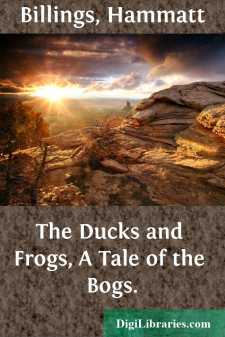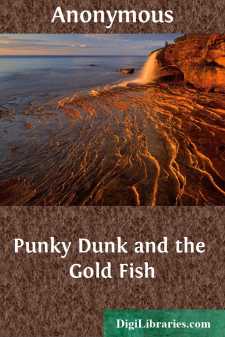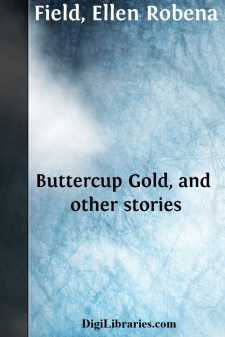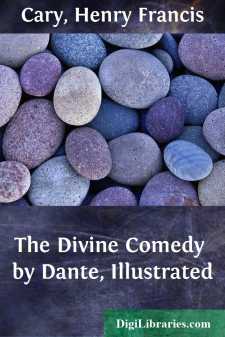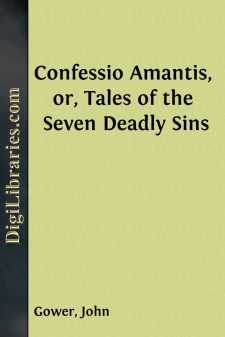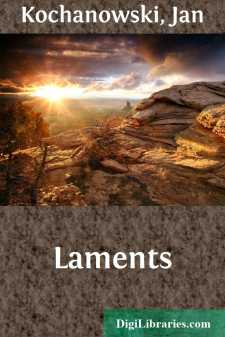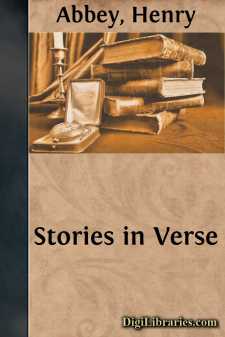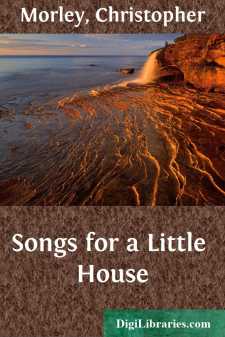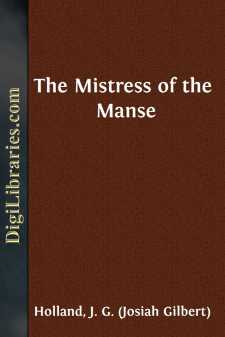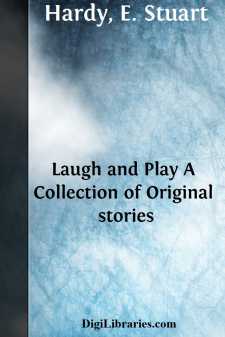Poetry
General Books
Sort by:
by:
Hammatt Billings
THE DUCKS AND THE FROGS chanced upon a certain day, When cheerful Summer, bright and gay,Had brought once more her gift of flowers,To dress anew her pleasant bowers;When birds and insects on the wingMade all the air with music ring;When sunshine smiled on dell and knoll,Two Ducks set forth to take a stroll.'Twas morning; and each grassy bankOf cooling dew had deeply drank—Each fair young flower...
more...
by:
Anonymous
Punky Dunk, so fat, was a black and white catOf exceedingly tender years.He had black on his nose and the tips of his toes,On the end of his tail and his ears.He cast his lot in a very soft spotFor his bed was a box full of straw,And he slept all night with his eyes shut tightAnd his little black nose on his paw.Punky Dunk would peep, though he seemed asleep,At the bird in its cage of brass,And his tail...
more...
The Little New Year One cold morning Maurice awoke from his dreams and sat up in bed and listened. He thought he heard a knock at his window; but though the moon was shining brightly, Jack Frost had been so busily at work that Maurice could not see through the thickly painted panes. So he crept sleepily out of bed, and opened the window, and whispered: "Who is there?" "I am," replied a...
more...
CANTO I His glory, by whose might all things are mov'd,Pierces the universe, and in one partSheds more resplendence, elsewhere less. In heav'n,That largeliest of his light partakes, was I,Witness of things, which to relate againSurpasseth power of him who comes from thence;For that, so near approaching its desireOur intellect is to such depth absorb'd,That memory cannot follow....
more...
by:
John Gower
Prologus Torpor, ebes sensus, scola parua labor minimusqueCausant quo minimus ipse minora canam:Qua tamen Engisti lingua canit Insula BrutiAnglica Carmente metra iuuante loquar.Ossibus ergo carens que conterit ossa loquelisAbsit, et interpres stet procul oro malus. Of hem that writen ous toforeThe bokes duelle, and we therforeBen tawht of that was write tho:Forthi good is that we alsoIn oure tyme among...
more...
by:
Jan Kochanowski
LAMENT I Come, Heraclitus and Simonides,Come with your weeping and sad elegies:Ye griefs and sorrows, come from all the landsWherein ye sigh and wail and wring your hands:Gather ye here within my house todayAnd help me mourn my sweet, whom in her MayUngodly Death hath ta'en to his estate,Leaving me on a sudden desolate.'Tis so a serpent glides on some shy nestAnd, of the tiny nightingales...
more...
by:
Henry Abbey
I. THE VENDER OF VIOLETS."Violets!Violets! Violets!"This was the cry I heardAs I passed through the street of a city;And quickly my heart was stirredTo an incomprehensible pity,At the undertone of the cry;For it seemed like the voice of oneWho was stricken, and all undone,Who was only longing to die."Violets! Violets! Violets!"The voice came nearer still."Surely," I said,...
more...
BAYBERRY CANDLESDear sweet, when dusk comes up the hill, The fire leaps high with golden prongs;I place along the chimneysill The tiny candles of my songs. And though unsteadily they burn, As evening shades from grey to blueLike candles they will surely learn To shine more clear, for love of you. SECRET LAUGHTER"I had a secret...
more...
I. A fluttering bevy left the gate With hurried steps, and sped away; And then a coach with drooping freight, Wrapped in its film of dusty gray, Stopped; and the pastor and his mate Stepped forth, and passed the waiting door, And closed it on the gazing street. "Oh Philip!" She could say no more. "Oh Mildred! You're at home, my sweet,— The old life...
more...
by:
E. Stuart Hardy
Laugh and Play. Laughand play all the day:Don't you think with meWhen I say that's the wayIf you'd happy be?Maid and lad, if we hadNever time for song,Always sad, never glad,Days would seem so long!Tear and sigh make the skyDark and sad and grey;Never cry—only tryJust to laugh and play.Faces bright make sunlightAll the merry day;Frowns they fright out of sight—So we'll...
more...


